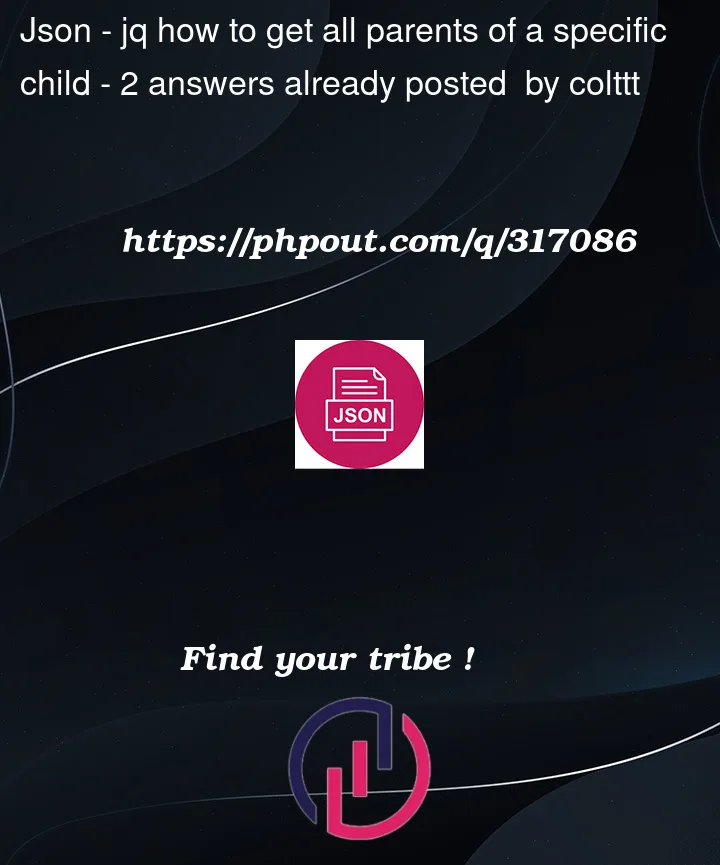Hello I’ve the following json and try to get all parents who have the "linux-image-amd64"
{
"web-prode-01.example.de": "ERROR: Problem encountered installing package(s). Additional info follows:nnchanges:n ----------n linux-image-amd64:n ----------n new:n old:n 6.1.55-1nerrors:n - Running scope as unit: run-rad31bddd35ec452b9d67fef004ce3daf.scopen E: Sub-process /usr/bin/dpkg returned an error code (1)",
"web-prode-04.example.de": {
"linux-image-amd64": {
"old": "5.10.197-1",
"new": "5.10.205-2"
},
"linux-image-5.10.0-27-amd64": {
"old": "",
"new": "5.10.205-2"
}
},
"lmrelaunch.example.de": {
"linux-image-6.1.0-0.deb11.13-amd64": {
"old": "",
"new": "6.1.55-1~bpo11+1"
},
"linux-image-amd64": {
"old": "6.1.38-4~bpo11+1",
"new": "6.1.55-1~bpo11+1"
}
}
}
I tried jq -r 'keys[] as $k | "($k) (.[$k]."linux-image-amd64")"' but I just got one entry instead of two




2
Answers
working demo here
Returns :
You should check if the context
hasthat key. Also, to prevent the string from failing when trying to applyhason it, either filter forobjects, or suppress the error with?. In either case, use this condition to filter the results usingselect.You can then construct your output using
$k, e.g.: